Professor Wendy Barclay - Chair in Influenza Virology, Imperial College London
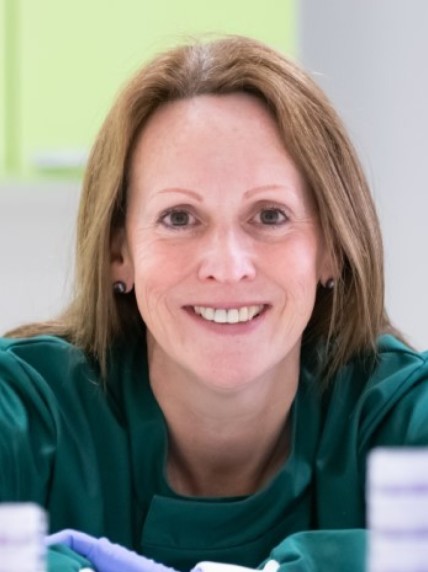
After graduating from Cambridge University, Wendy’s postgraduate study at the Common Cold Unit in Salisbury involved infecting human volunteers with cold viruses to understand why people keep getting colds year after year. In her two postdoctoral appointments, at the University of Reading and then Mount Sinai Medical Centre in New York, Wendy learned the molecular virology skills that would form the technological basis of her research career. Upon returning to Reading in 1995 to a junior lectureship, she set up her research group to study influenza viruses. In May 2007 she took up a Chair in Influenza Virology at Imperial College London.
She is particularly interested in the mechanism by which viruses can cross from animal sources into humans to cause new pandemics. She sits on several advisory boards, for example, offering advice about respiratory virus outbreaks and also works with the Science Media Centre, whose aim is to improve the relationship between scientists and the media.
Dr Carol Sheppard - Research Fellow
carol.sheppard08@imperial.ac.uk

Dr Carol Sheppard is a Research Fellow specialising in host-pathogen interactions, viral gene expression and genome replication. Her research explores the mechanisms by which influenza viruses exploit host cellular machinery to replicate and adapt, with an emphasis on developing innovative, host-targeted strategies for disease prevention.
Carol’s expertise is centred on RNA polymerases—the molecular machines that catalyse transcription and genome replication. Her research has significantly expanded our knowledge of how these enzymes operate, uncovering how viruses control gene expression in bacteria, archaea, and eukaryotes. Carol conducted her PhD at Imperial College London under the guidance of Prof. Ramesh Wigneshweraraj (2008-2012). Her research focused on revealing the molecular mechanisms of phage-derived inhibitors of the bacterial RNA polymerase to inform novel antimicrobial therapies. Driven by her passion for gene expression and virus-host dynamics, she continued her research in Prof. Finn Werner’s lab at University College London (2012-2018). There, she shifted her focus to archaeal systems, making the landmark discovery of the first virus-encoded regulator of the archaeal RNA polymerase, and later expanded her research to examine the transcriptional regulation of the MegaVirus ASFV.
In 2018, Carol joined the Barclay group as a senior postdoctoral researcher, where a significant aspect of her work involved the study of the ANP32 protein family, which plays an essential role in supporting influenza virus propagation. Her research has elucidated the mechanisms by how the influenza RNA polymerase (FluPol) harnesses different ANP32 proteins to catalyse viral genome replication. By leveraging these insights her research is now advancing efforts to develop gene-edited poultry with tailored ANP32 proteins that eliminate all viral support, offering a promising solution for preventing influenza outbreaks in agriculture and reducing the risk of zoonotic spillover.
Carol’s independent research seeks to identify and characterise critical host factors that enable RNA polymerases of priority RNA viruses to function. She employs an interdisciplinary approach that integrates virology, proteomics, and molecular biology with applied biotechnology in her mission to combat influenza and create sustainable solutions for global food security and public health.
Dr Jay, Jie Zhou - Research Associate
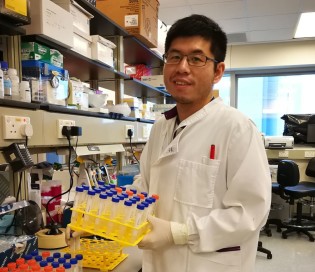
Jay received his PhD in Virology in 2017 from the centre of influenza research, school of public health, the University of Hong Kong. His PhD project is to define the aerosol particle size which can mediate the airborne transmission of influenza viruses and investigate related molecular determinants. During this time he also conducted an air sampling surveillance at the live poultry markets in Guangzhou, China. Jay has been a postdoctoral research associate at the Barclay’s since January 2018. He is participating in the “Collaboflu” project which aims to study the transmission modes and evolution of human influenza H3N2 viruses.
Dr Jonathan Brown - Research Associate

Jonathan obtained an undergraduate degree in Biology and a master’s degree in Immunology from Imperial College London. After a two-year sabbatical teaching English in South Korea, Jonathan returned to Imperial to study a PhD in Molecular Virology in partnership with NIBSC which he completed in 2019. After his PhD, Jonathan spent one year in the laboratories of Peter O’Hare and John Tregoning on an Imperial Confidence in Concept grant looking into HSV virology and novel vaccine development strategies. He then joined the Barclay lab to work on a BBSRC grant developing flu-resistant chickens by targeting host factor ANP32. However, soon after joining the lab, the COVID-19 pandemic began and Jonathan switched to working on a diverse array of SARS-CoV-2 projects. These included work as part of the REACT serology consortium, Genotype to Phenotype (G2P) consortium, G2P-Global consortium, human challenge projects and numerous other collaborations. Jonathan currently works as part of the G2P2 consortium developing alternative cell models for investigating SARS-CoV-2 variant phenotypic differences.
Jack Hassard - Research Associate

Jack obtained an BSc (Hons) in Biochemistry from Imperial College London in 2018 and continued to study at Imperial where he completed a masters degree and PhD. Jack carried out his PhD between the Barclay laboratory and the Dell Biopolymer Mass Spectrometry laboratory; his research focused on engineering the expression of glycan receptors on the surface of cells to improve influenza A (H3N2) virus propagation, which is currently challenging due to the receptor preference of these viruses. During the COVID-19 pandemic, Jack investigated the potential role of the glycosaminoglycan heparan sulfate in SARS-CoV-2 infection. Jack currently works on the Flu:Trailmap and Flu:Trailmap-One Health projects where he characterizes potential glycan receptors for avian influenza (H5N1) viruses present in various avian and mammalian species. This work aims to better understand the zoonotic and pandemic risk that current circulating H5N1 viruses pose.
Hannah Klim - Research Associate
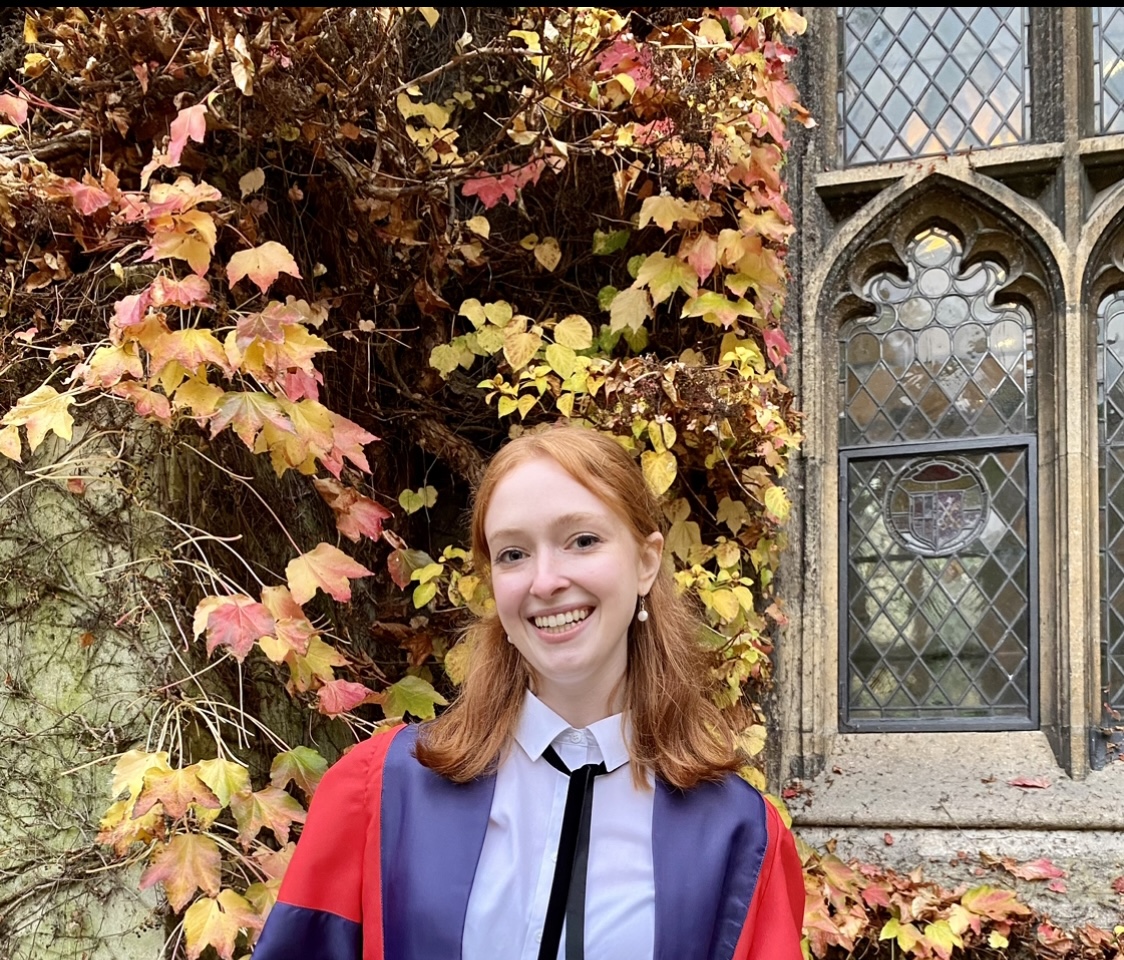
Hannah obtained an undergraduate degree in Biochemistry from Wellesley College (USA) in 2020. After her undergraduate, Hannah went on to complete a PhD (DPhil) at the University of Oxford with Prof Miles Carroll. Hannah’s PhD research focused on serological and epidemiological surveillance of avian influenza and other emerging pathogens in Malaysian Borneo. In 2024, Hannah began work in the Barclay laboratory on the Flu:Trailmap-One Health project. In this role, she characterizes how H5 HA evolves as it circulates through different host species. This project consortium aims to better understand the risk of circulating H5N1 viruses to improve pandemic preparedness.
Dorothee Reuss - PhD Student
Dorothee graduated with a BSc degree in “Biological Sciences” from the Ruprecht-Karls-University of Heidelberg in Germany in 2018. During this time, she developed her interest in the molecular mechanisms of innate immunity and host-pathogen-interactions in the context of infectious diseases, especially viral infections. Thus, in the same year she started her MSc degree in the “Molecular Biosciences” Master´s program within the Major “Infectious Diseases”. In her Master thesis she focused on investigating differences in the expression and antiviral function of Interferon Lambda 1, 2 and 3 in airway and intestinal epithelial cells. Following her MSc degree in 2021, she then joined the Barclay lab as a PhD student at the Imperial College London. In her PhD project she is currently working on respiratory virus coinfections, including SARS-CoV-2, influenza A virus, respiratory syncytial virus and human rhinovirus, and is aiming to understand the biological factors governing coinfection with more than one respiratory virus. By developing a cell model that accurately resembles the human airway epithelium, she wants to examine the outcome upon competitive infection in terms of viral growth and cellular responses. Hopefully her work will offer new insights into pathogenesis and disease outcome of competitive respiratory virus coinfection and can be used to better understand the risk of respiratory viral coinfections in the upcoming winter seasons.
Amalie Rasmussen - PhD student
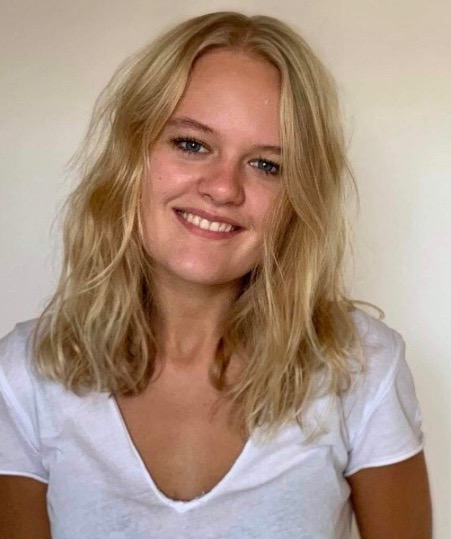
Amalie obtained a BSc (Hons) Biochemistry degree from the University of St Andrews in 2020. After graduating, she went on to undertake an MRes in Biomedical Research at Imperial College London. During this time, she completed two research projects. Amalie did her first project in the malaria modelling group, where she investigated the use of untreated mosquito nets in preventing malaria infection. Her second project was in the Barclay Lab, studying influenza virus replication and in particular, the role of the host factor ANP32 and host restriction. In October 2021, Amalie started the Medical Research Council (MRC) doctoral training partnership PhD programme and joined the Barclay Lab as a PhD student. Amalie’s work will aim to develop techniques to understand and compare the interactome of the influenza virus polymerase in replication and transcription.
Rebecca Frise - Laboratory Manager
After completing her undergraduate degree in Microbiology at the University of Reading Rebecca spent several years working in a Structural biology lab at the University of Oxford. This provided a great opportunity to learn new tools and techniques not learnt during her degree. She joined the Barclay group as she had realised her true interest was in Virology and particularly Influenza. Since then she has worked on a diverse range of projects, mainly focusing on host directed anti-influenza therapies and antiviral resistance. In September 2017 Rebecca was awarded the Provost's Prize for Excellence in Animal Research at Imperial College. And in 2022 she was again awarded the Provost's Prize for Excellence in Animal Research. After working as a lab manager at QMUL and the Francis Crick Institute for 2.5 years Rebecca has re-joined the lab as a full time lab manager.
Former Lab Members
Olivia Swann - PhD student
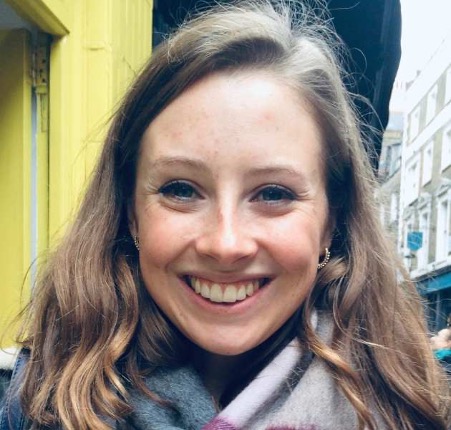
Olivia graduated with a degree in Natural Sciences from the University of Cambridge in 2014. She then moved to Imperial College London to complete an MRes in Molecular and Cellular Biosciences. During this time she developed her interest in the molecular underpinnings of infectious disease. Following her master’s degree, Olivia spent some time working as a research technician in Professor Jake Baum’s lab, undertaking a variety of projects utilising CRISPR-Cas9 genetic editing to study the malaria-causing parasite Plasmodium falciparum. In 2017 she commenced the Wellcome Trust Molecular and Cellular Basis of Infection PhD programme, completing three short rotational projects before joining the Barclay lab in October 2018. Olivia worked to develop techniques for visualising the site of influenza replication in the host cell nucleus. Hopefully, these tools will allow new insight into host factor interactions with the flu polymerase, and how these differ between strains that can infect humans vs those that only infect animals. Olivia completed her PhD and has embarked on an adventure travelling the world.
Becky Penn - PhD student

Becky graduated with a BSc in Zoology from the University of Southampton in 2005 after which she worked as a Research Technician within the Environmental Healthcare Unit at Southampton University, investigating methods to detect and decontaminate prion infected material from surgical stainless steel. Becky then joined the Influenza Resource Centre at the National Institute for Biological Standards and Control in 2007 where she primarily focused on generating high growth reassortants for use as candidate vaccine viruses. During this time she also completed a part-time MSc in Health and Disease at Birkbeck University. In 2014, Becky took on a more senior role within the IRC, managing the laboratory work of the seasonal influenza team. This included organising the WHO serology testing required for vaccine strain selection, generating reagents for assessing vaccine potency and the development and distribution of seasonal candidate vaccine viruses. In October 2018, she joined the Barclay lab as a PhD student combining her interest in the influenza virus with her desire to conduct research. Becky has moved to the Francis Crick Institute, working as a Senior Laboratory Research Scientist in David Bauer's lab.
Ollie Platt - Research Technician
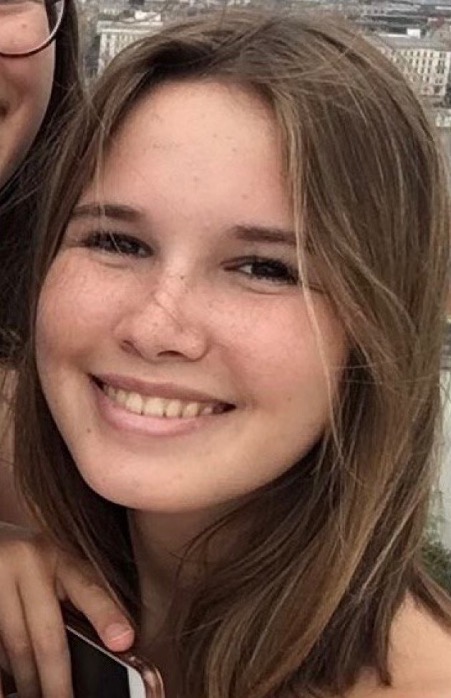
Ollie received a BSc (Hons) in Biochemistry from the University of Exeter in 2020. Her BSc project focused on the optimisation of mass spectrometric techniques for use in HDX-MS. After graduating, Ollie moved to Imperial College London to study an MSc in Molecular Biology and Pathology of Viruses. She joined the Barclay Lab to complete her MSc project in March of 2021 under the supervision of Dr. Carol Sheppard, where she was focused on elucidating the molecular interactions between avian influenza A polymerase and ANP32. Ollie joined the lab as a research technician in October 2021. Ollie started a PhD in David Bauer's lab at the Francis Crick Institute in 2022.
Maya Moshe - Research Technician
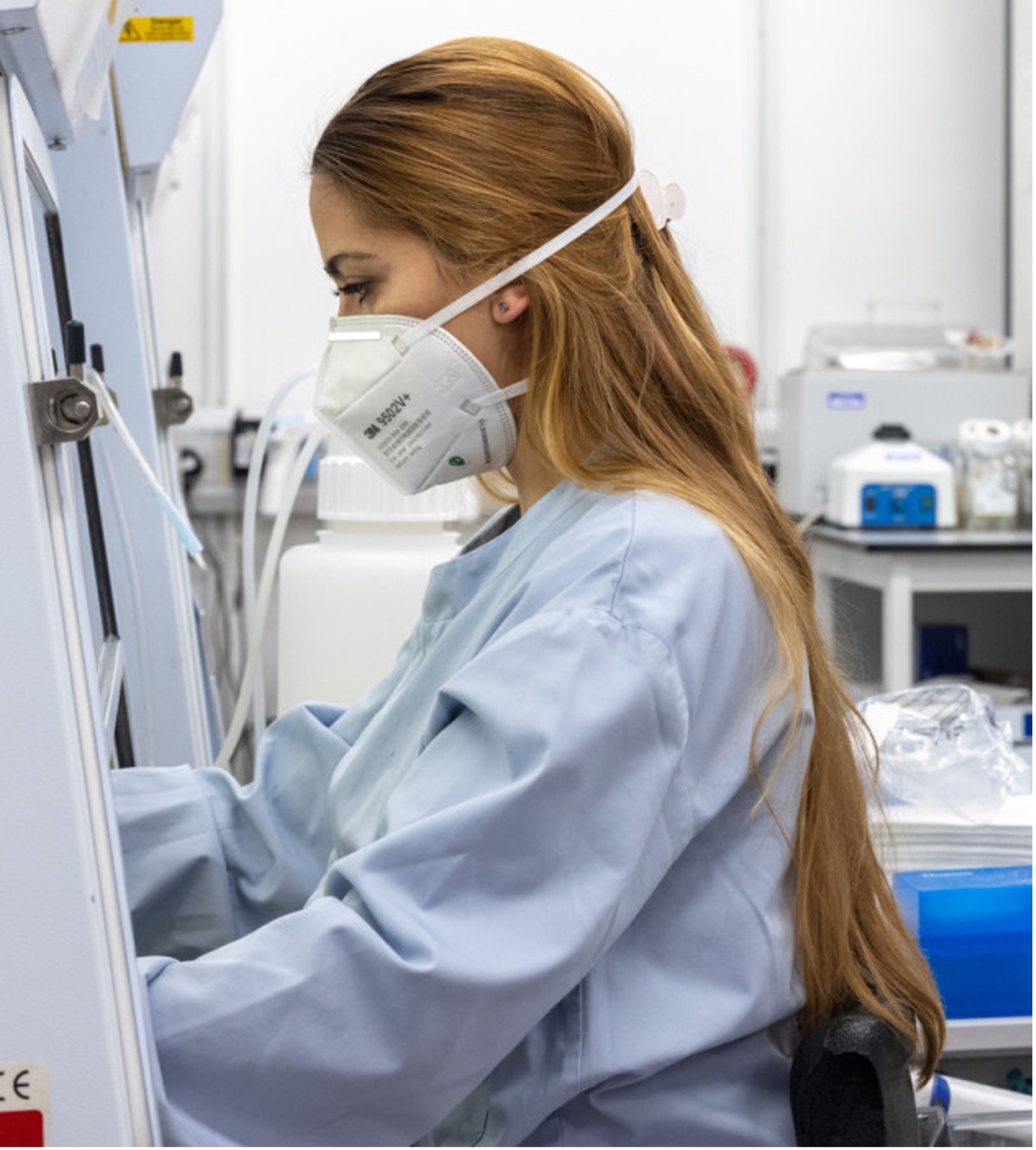
Maya completed her MSc in Molecular Virology at Imperial College where she joined the laboratory of Peter O’Hare and worked on characterising the cell innate response to infection with HSV-1 at single cell resolution. Maya then joined the Barclay laboratory during the onset of the COVID-19 pandemic and became a member of the REACT team. REACT is a major collaborative research programme formed to track the status of the pandemic. Maya worked on multiple REACT studies and conducted laboratory analyses to identify a suitable lateral flow antibody test for nation-wide seroprevalence surveys. Following this, REACT conducted the largest seroprevalence surveys globally and was able to estimate antibody prevalence to SARS-CoV-2 at various stages of the pandemic. Maya has joined the Medical Research Council's Strategy & Planning team as their new Strategic Engagement Manager. In this role, she'll be focusing on Infrastructure and Capital-related government health initiatives.
Dr Thomas Peacock - Research Associate
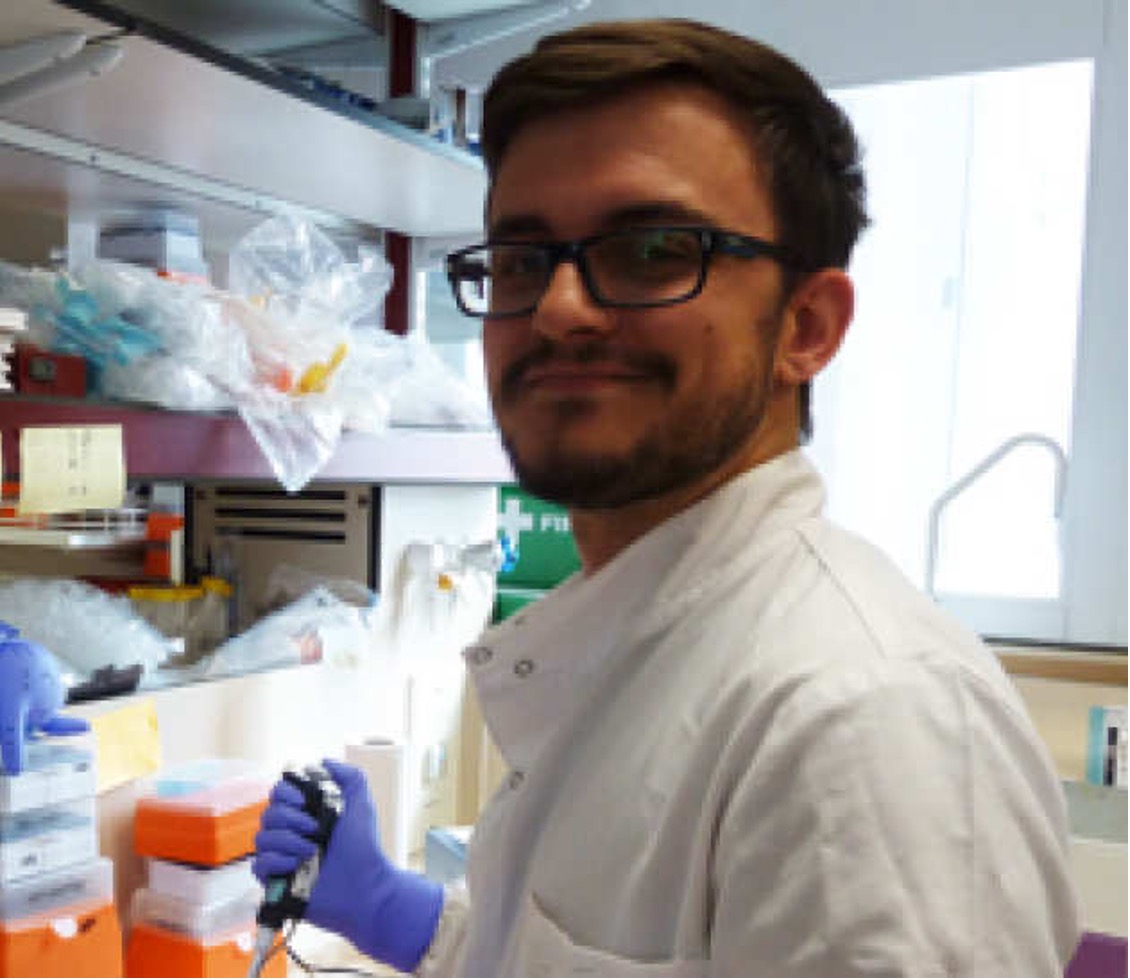
Tom was a postdoctoral scientist initially working on cross-species adaptation of influenza viruses before starting work on the evolution and adaptation of SARS-CoV-2 during the pandemic, chiefly as a member of the UK G2P virology consortium. After 6 years in the lab Tom has moved to the Pirbright Institute as an Institute Fellow, Tom has started his own group, the Zoonotic Influenza Viruses research group. Tom is working with the flu-map consortium investigating the drivers of the current H5N1 avian influenza panzootic.
Dr Daniel Goldhill - Research Associate

Daniel was a post-doc using experimental evolution to study influenza virus. In 2015, he joined the HPRU in Respiratory Infections working jointly between Public Health England and the Barclay lab at Imperial College. Here he used experimental evolution to understand the mechanism through which influenza might develop resistance to favipiravir, a novel antiviral. Hopefully, this work will lead to a public health benefit in that we will be able to understand how viruses may become less susceptible to the drug and design better assays to test for resistance. He then studied how influenza evolved to changes in host factors ANP32A and ANP32B. After 7 years in lab, he has moved on to become a lecturer in Virology at RVC.
Laury Baillon - Research Assistant
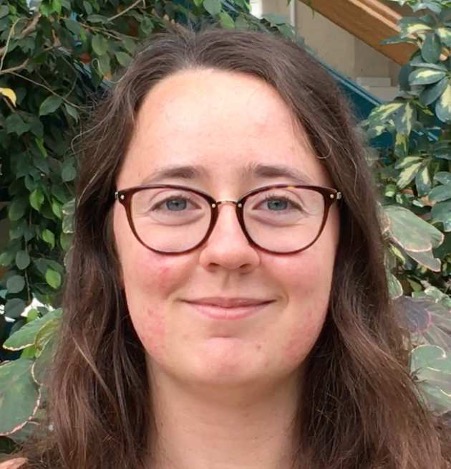
Laury graduated with a BSc in Biotechnologies from the University of Dijon (France) in 2013. She worked as a technician for several years on marine molluscs pathogens in IFREMER laboratory (French institute for marine research). Then she moved in 2015 to the Molecular Immunology and Virology unit of INRA (Jouy-en-Josas, France), working as research assistant on fish viruses. She got involved in European project called Novimark studying virulence markers of novirhabdoviruses infecting rainbow trouts. This experience allowed her to learn some techniques of molecular virology such as reverse genetics or production of modified viruses that she can now apply to influenza research. She joined the Barclay group in September 2019 as a research assistant. Laury returned to France in 2021 to become a research assistant in the Cancer research center in Lyon.
Dr Raul Yusef Sanchez David - Research Associate

Ecco Staller – Former PhD Student
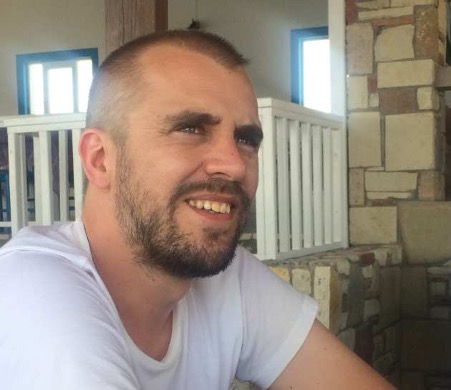
Ecco earned a BSc (Hons) in Natural Sciences from the Open University in 2013, followed by an MSc in Molecular Biology of Infectious Diseases at the London School of Hygiene and Tropical Medicine in 2015. He won an Imperial College President’s Scholarship in 2016, starting his research on the role of human / mammalian ANP32 proteins in influenza virus replication. He set up a CRISPR/Cas9 genome editing approach to the question and is currently busy collecting data and writing papers. Ecco has won a Principle Investigator Poster Prize at the Microbiology Society Annual Conference in Birmingham 2017, and an ISIRV travel and registration award to present his work at the 8th Orthomyxovirus Research Conference in Hanoi, Vietnam in 2018. Following his PhD, Ecco moved to Oxford to do a post-doc with the Fodor group.
Dr Anika Singanayagam - Former Clinical Research Fellow
Anika graduated in 2008 with a degree in Medicine from the University of Oxford. During this time, she completed a BA (Hons) degree in Medical Sciences, specialising in infection and immunity. As a postgraduate, she completed general medical training in London and subsequently entered speciality training as an Academic Clinical Fellow in Infectious Diseases and General Internal Medicine. Anika undertook a PhD investigating the biological properties of influenza virus haemagglutinin that impact its ability to cause disease in infected people and spread throughout populations. She has now returned back to her medical training.
Dr Jason Long - Former Research Associate

Bhakti Mistry - Former PhD student
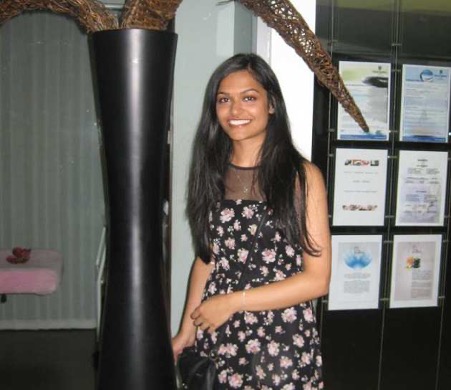
Bhakti graduated with a degree in Biochemistry at Imperial College London in 2014. After her degree, she started a 1+3 PhD programme, where in the first year, three research projects were undertaken as part of an MRes qualification. She completed her PhD in 2019, which focused on the host restriction mechanisms of the influenza polymerase and in particular the role of ANP32 proteins in supporting the influenza polymerase.
Alfred Ho – PhD student
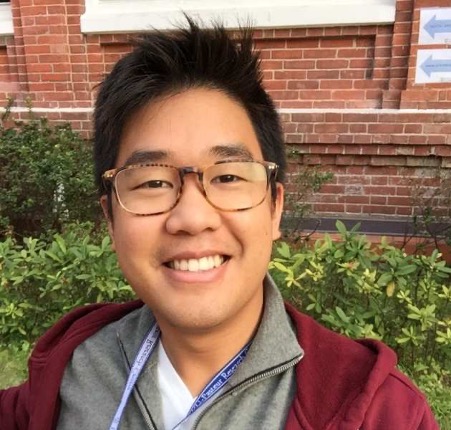
Contact us
For any enquiries related to this group, please contact:
Professor Wendy Barclay
Chair in Influenza Virology
+44 (020) 7594 5035
w.barclay@imperial.ac.uk

